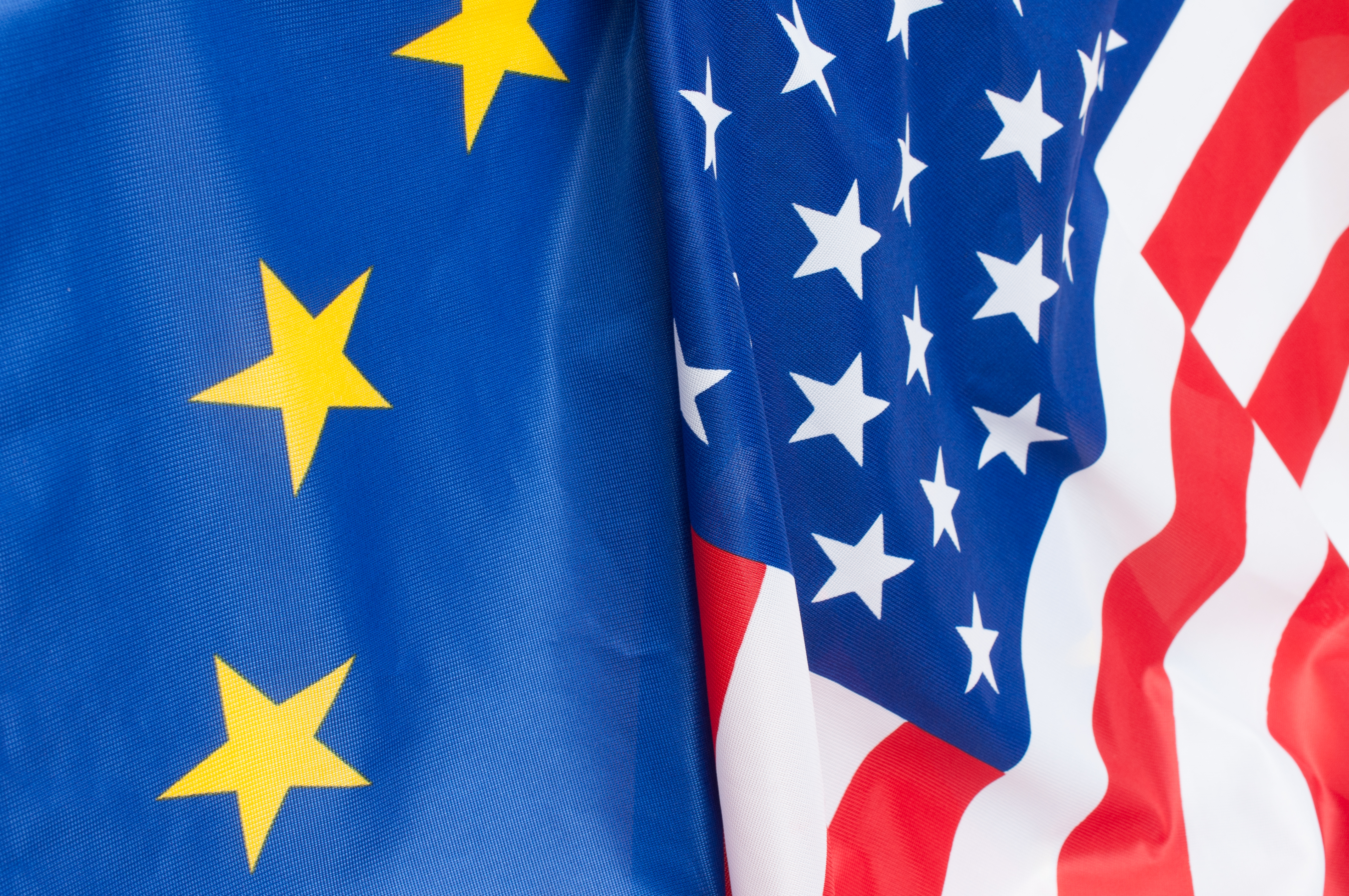The past EU-U.S. Summit on October 20, 2023, in Washington D.C. was an essential meeting for the transatlantic partners. By coming together, the partners could further work on initiatives to enhance cooperation in security, technology, and the advancement of rules-based trade, among other domains – all areas that AmCham Germany endorses. A key takeaway from the summit is the outspoken unity of EU and the U.S. in support of Ukraine and Israel. Whereas assistance in this regard is paramount, the results of the summit in terms of trade and industrial policy were unfortunately lacking to tangibly dismantle trade barriers and strengthen transatlantic sovereignty. Simone Menne, AmCham Germany President, highlighted the significance of the EU-U.S. Summit in this opinion piece and summarized AmCham Germany’s appeals as representative of transatlantic business.
As a trade association, AmCham Germany viewed the EU-U.S. Summit as an important platform for various economic issues: To resolve the bilateral trade dispute between the EU and the U.S. regarding partially frozen U.S. tariffs on EU steel and aluminum products and the opportunity to adopt the Global Arrangement on Sustainable Steel and Aluminum, designed to address global overcapacity issues, promote market-oriented conditions, and support the decarbonization of the steel and aluminum industries. The two-year time frame for the negotiation of the Global Arrangement on Sustainable Steel and Aluminum is critical, as it is coming to an end by December 2023. Hence, not only progress in this regard – as was communicated – but rather a final compromise must be established. Otherwise, the tariffs which are currently frozen, will come into force again.
Another pressing topic is the need to address EU-U.S. Agreement on Critical Minerals, as this could facilitate European companies' ability to trade with U.S. battery manufacturers without adverse impacts from the IRA. Whereas there has progress made in bringing forward this agreement during the summit, it is essential that a proper framework is established soon to provide a stable environment for European companies. An agreement of this scope would be a major sign of transatlantic cooperation.
Amid fragile global conditions, deeper integration between the EU and the U.S. becomes crucial to enhance their capacity to act jointly, stimulate industrial growth, and advance the climate-neutral transformation of their economic regions. Given the geopolitical context, it is imperative for transatlantic partners to demonstrate consensus and unity on these matters, especially considering potential disagreements, such as those concerning the U.S. Inflation Reduction Act (IRA) and possible EU responses. The urgency for alignment stems from the approaching year 2024 – a year which in its nature as an election year – with the European Parliament elections in June and the U.S. presidential election in November – the focus of political stakeholders is bound to pivot on the elections.
Our anticipation extends to the impending Ministerial of the Trade and Technology Council in December and hope that tangible outcomes are delivered to strengthen transatlantic sovereignty and provide a beneficial working ground for the citizens and enterprises across the Atlantic.

